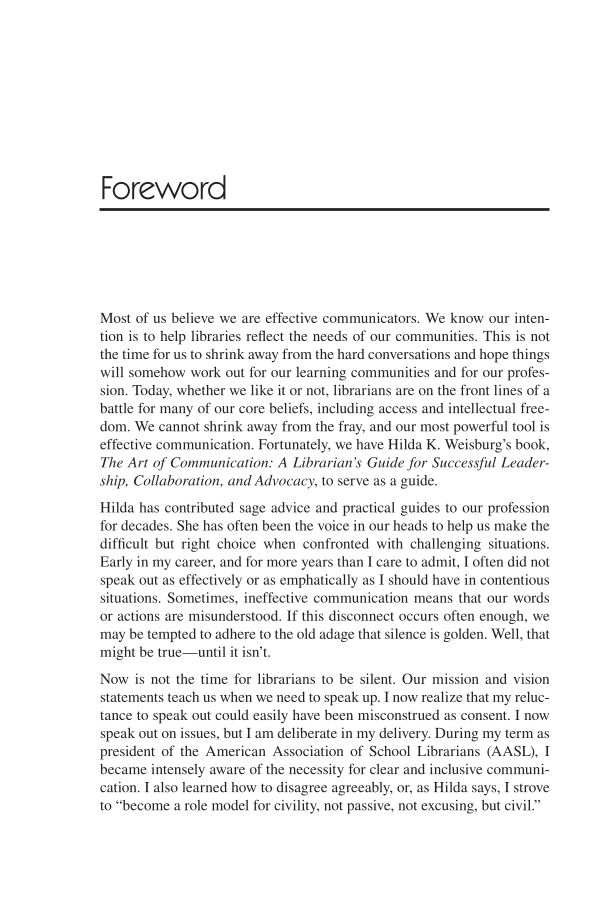Foreword Most of us believe we are effective communicators. We know our inten- tion is to help libraries reflect the needs of our communities. This is not the time for us to shrink away from the hard conversations and hope things will somehow work out for our learning communities and for our profes- sion. Today, whether we like it or not, librarians are on the front lines of a battle for many of our core beliefs, including access and intellectual free- dom. We cannot shrink away from the fray, and our most powerful tool is effective communication. Fortunately, we have Hilda K. Weisburg’s book, The Art of Communication: A Librarian’s Guide for Successful Leader- ship, Collaboration, and Advocacy, to serve as a guide. Hilda has contributed sage advice and practical guides to our profession for decades. She has often been the voice in our heads to help us make the difficult but right choice when confronted with challenging situations. Early in my career, and for more years than I care to admit, I often did not speak out as effectively or as emphatically as I should have in contentious situations. Sometimes, ineffective communication means that our words or actions are misunderstood. If this disconnect occurs often enough, we may be tempted to adhere to the old adage that silence is golden. Well, that might be true—until it isn’t. Now is not the time for librarians to be silent. Our mission and vision statements teach us when we need to speak up. I now realize that my reluc- tance to speak out could easily have been misconstrued as consent. I now speak out on issues, but I am deliberate in my delivery. During my term as president of the American Association of School Librarians (AASL), I became intensely aware of the necessity for clear and inclusive communi- cation. I also learned how to disagree agreeably, or, as Hilda says, I strove to “become a role model for civility, not passive, not excusing, but civil.”
Document Details My Account Print multiple pages
Print
You have printed 0 times in the last 24 hours.
Your print count will reset on at .
You may print 0 more time(s) before then.
You may print a maximum of 0 pages at a time.






























































































































































































































